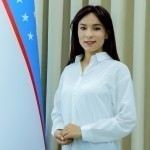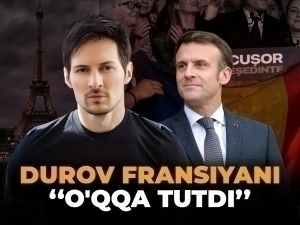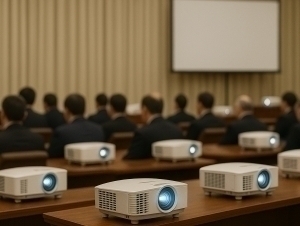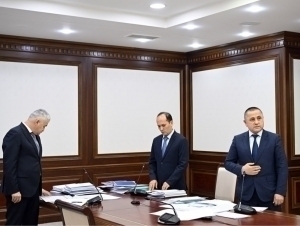Is the election bad for the budget?
Local
−
17 October 2024 4369 3 minutes
Economy first, then politics. However, the economic state of a country is ultimately shaped by political decisions. On October 11, during the third debate held at the Debate Hall, political parties discussed key issues regarding the state budget.
National Revival Party
If victorious, the National Revival Party aims to strengthen the value of the soum and expand visa-free travel agreements between Uzbekistan and other countries.
Adolat Party
The Adolat Party's primary focus is on enhancing cybersecurity.
"Our main goal is not to tax high-income earners heavily but to support their businesses by offering low-interest loans. We have two specific economic proposals: improving the tax system and ensuring fair budget distribution," said Behzod Tokhtamurodov, a representative of the party.
UzLiDeP
The Liberal Democratic Party of Uzbekistan (UzLiDeP) has ambitious plans to create over 2.5 million additional high-income jobs and increase the number of entrepreneurs to 3 million.
People's Democratic Party (PDP)
The People's Democratic Party advocates for greater transparency in budget management, ensuring that citizens are both aware of and involved in state budget decisions. The party also supports improving conditions for migrant workers.
Party of Ecology of Uzbekistan
During the debate, the Party of Ecology provided a key piece of information: Uzbekistan has 4.5 million hectares of agricultural land, while desert areas are five times larger. The party's main focus is combating desertification.
Debate Highlights and Controversies
The debate was marked by heated exchanges. The Ecoparty’s representative, who appeared with a basil plant, opposed the Adolat Party's proposal to distribute unproductive land to citizens. UzLiDeP countered by suggesting that even unproductive land could be used for agricultural purposes.
Anvarkhan Temirov, the speaker for the People's Democratic Party, was critical not just of the Ecological Party but also of other parties. He accused the National Revival Party of offering vague proposals, saying, "There are misunderstandings in your pre-election proposals; you fail to present clear demands and issues." The National Revival Party defended itself, stating it had not yet had the opportunity to introduce its legislative proposals to parliament.
"Many people think the National Revival Party is conservative, but we oppose anything that is against our national interests and development," a representative stated.
Temirov also argued that UzLiDeP’s proposals might infringe on citizens' rights.
The Adolat Party accused the National Revival Party of potentially harming entrepreneurs with its proposal to standardize food prices. The National Revival Party responded that the measure was necessary to protect farmers struggling with crop damage.
During its turn, the National Revival Party questioned the People's Democratic Party's plan to impose additional taxes on products deemed harmful to health, asking, "Before introducing a tax on unhealthy products, how much economic efficiency has been studied, and would this not negatively impact the state budget?"
The PDP defended its stance, explaining that while the budget might be affected, public health should not be compromised, noting that over 50 countries have implemented similar taxes.
The debate intensified when UzLiDeP challenged the PDP's proposal to introduce additional taxes on enterprises building luxury housing. They questioned whether such taxes might restrict entrepreneurial activities rather than support them. The PDP responded,
"We have supported entrepreneurs thus far. Now, it's time to focus on the socially disadvantaged. We plan to build affordable housing by allocating funds from these entrepreneurs to a social fund."
Live
All



